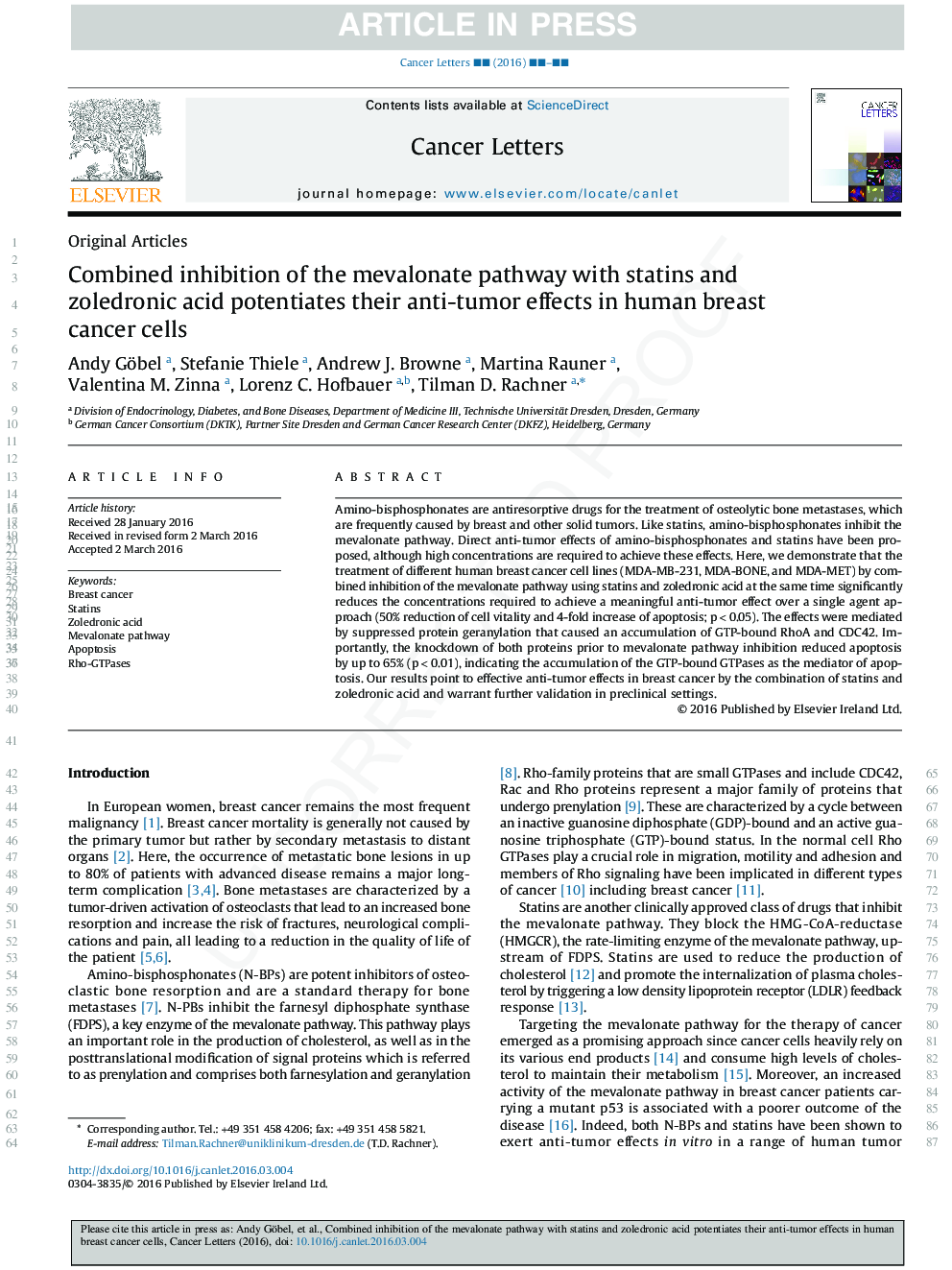| Article ID | Journal | Published Year | Pages | File Type |
|---|---|---|---|---|
| 10901362 | Cancer Letters | 2016 | 10 Pages |
Abstract
Amino-bisphosphonates are antiresorptive drugs for the treatment of osteolytic bone metastases, which are frequently caused by breast and other solid tumors. Like statins, amino-bisphosphonates inhibit the mevalonate pathway. Direct anti-tumor effects of amino-bisphosphonates and statins have been proposed, although high concentrations are required to achieve these effects. Here, we demonstrate that the treatment of different human breast cancer cell lines (MDA-MB-231, MDA-Bone, and MDA-Met) by combined inhibition of the mevalonate pathway using statins and zoledronic acid at the same time significantly reduces the concentrations required to achieve a meaningful anti-tumor effect over a single agent approach (50% reduction of cell vitality and 4-fold increase of apoptosis; pâ<â0.05). The effects were mediated by suppressed protein geranylation that caused an accumulation of GTP-bound RhoA and CDC42. Importantly, the knockdown of both proteins prior to mevalonate pathway inhibition reduced apoptosis by up to 65% (pâ<â0.01), indicating the accumulation of the GTP-bound GTPases as the mediator of apoptosis. Our results point to effective anti-tumor effects in breast cancer by the combination of statins and zoledronic acid and warrant further validation in preclinical settings.
Related Topics
Life Sciences
Biochemistry, Genetics and Molecular Biology
Cancer Research
Authors
Andy Göbel, Stefanie Thiele, Andrew J. Browne, Martina Rauner, Valentina M. Zinna, Lorenz C. Hofbauer, Tilman D. Rachner,
